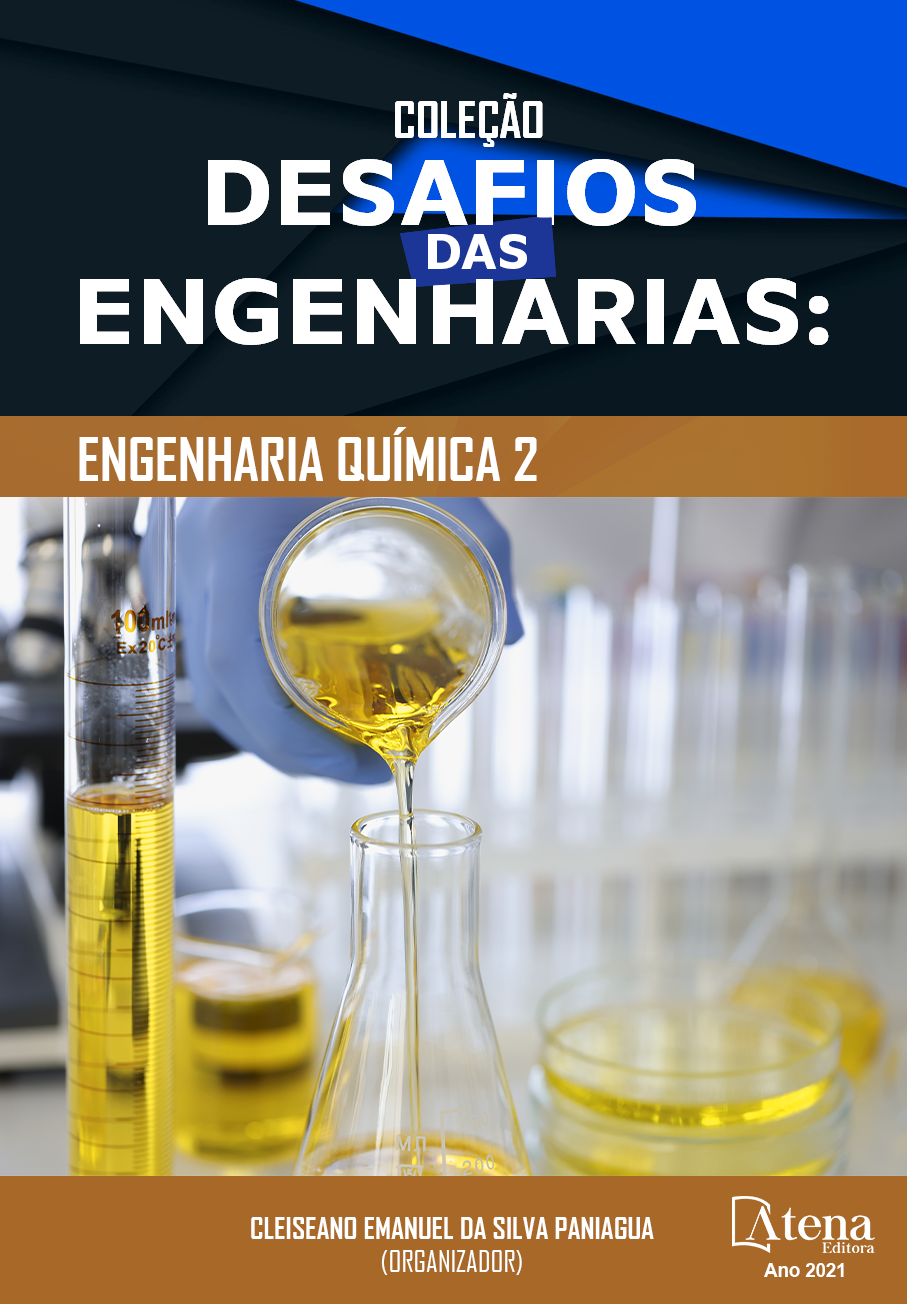
ESTUDO DA EFICIÊNCIA DA CASCA DE MARACUJÁ NA REMOÇÃO DE TURBIDEZ DE EFLUENTE OLEOSO
A água produzida é um efluente gerado em volume elevado nos campos maduros de petróleo. O gerenciamento dessa água é um grande desafio para a indústria, pois ela apresenta alta complexidade em sua composição físico-química, possuindo compostos químicos orgânicos, inorgânicos, sais, entre outros contaminantes e, portanto, necessita ser rigorosamente tratada. Diante disso, o objetivo desse trabalho foi avaliar a eficiência de cascas de maracujá (naturais e hidrofobizadas) na remoção da turbidez de efluente oleoso sintético. Incialmente, as cascas foram cuidadosamente lavadas, trituradas e submetidas à separação granulométrica em três faixas (-14+28; -28+48; -48+100 mesh). Parte das cascas foi hidrofobizada com cera de carnaúba, visando analisar a influência da hidrofobização em relação ao potencial de adsorção do material natural. O efluente oleoso foi preparado com água destilada e óleo diesel S500. Os ensaios de adsorção foram realizados em sistema de banho finito, colocando 5 g de casca de maracujá (naturais e hidrofobizadas) em contato com 190 ml do efluente. Os testes foram realizados para as três faixas granulométricas. Em seguida, foram realizados os testes de turbidez para cada amostra. A turbidez inicial do efluente oleoso foi de 774 NTU e, após o contato com as cascas apresentou redução significativa. Com o material natural a remoção variou entre 33,8% e 51,5%, já com o material hidrofobizado os valores obtidos foram mais altos, variando entre 73,5% e 81,9%. O maior percentual de remoção ocorreu utilizando as cascas hidrofobizadas na maior faixa granulométrica (-14+28). Portanto, os resultados mostram potencial para remoção de óleo, utilizando cascas de maracujá, principalmente, as hidrofobizadas.
ESTUDO DA EFICIÊNCIA DA CASCA DE MARACUJÁ NA REMOÇÃO DE TURBIDEZ DE EFLUENTE OLEOSO
-
DOI: https://doi.org/10.22533/at.ed.3622126101
-
Palavras-chave: Casca de maracujá, efluente oleoso, adsorção.
-
Keywords: Passion fruit shell, oily effluent, adsorption.
-
Abstract:
The water produced is an effluent generated in high volume in mature oil fields. The management of this water is a great challenge for the industry, because it presents high complexity in its physical-chemical composition, having organic chemical compounds, inorganic, salts, among other contaminants and, therefore, it needs to be rigorously treated. Therefore, the objective of this work was to evaluate the efficiency of passion fruit bark (natural and hydrophobic) in the removal from turbidity of synthetic oil effluent. Initially, the shells were carefully washed, crushed and subjected to granulometric separation in three ranges (-14+28; -28+48; -48+100 mesh). Part of the shells were hydrophobicized with carnauba wax, aiming to analyze the influence of hydrophobicization in relation to the adsorption potential of the natural material. The oily effluent was prepared using distilled water and S500 diesel oil. The adsorption tests were performed in bath process, it placing 5 g of passion fruit shell (natural and hydrophobic) in contact with 190 ml of the effluent. The tests were performed for the three granulometric ranges. Then, the turbidity tests were performed for each sample. The initial turbidity of the oily effluent was 774 NTU and, after contact with the barks, showed a significant reduction. For the natural material, the removal varied between 33.8% and 51.5%, while for the hydrophobic material the values obtained were higher, ranging from 73.5% to 81.9%. The highest percentage of removal occurred using hydrophobic material in the largest granulometric range (-14+28). Therefore, the results show that the materials tested have potential for oil removal, especially the hydrophobized shells.
-
Número de páginas: 12
- Antonia Vitória Grangeiro Diógenes
- Macilene Maria Monteiro Maia
- Daianni Ariane da Costa Ferreira
- Francisco Wilton Miranda da Silva
- Zilvam Melo dos Santos
- Manoel Reginaldo Fernandes
- Regina Celia de Oliveira Brasil Delgado
- Cinthia Silva Almeida


